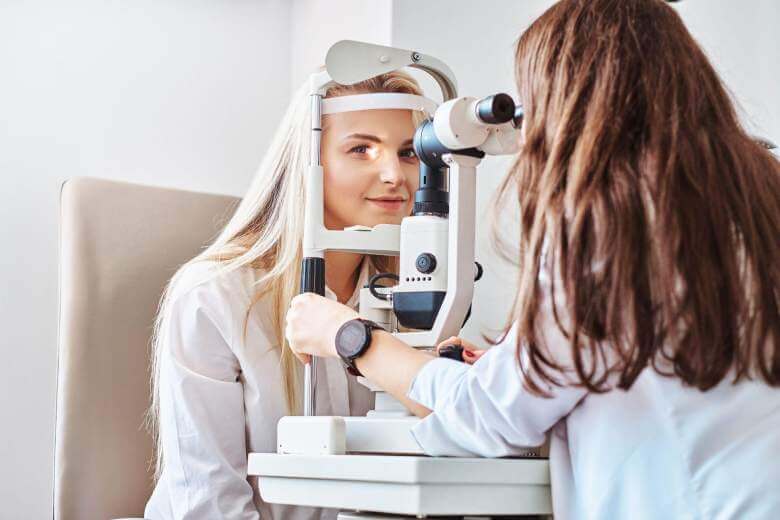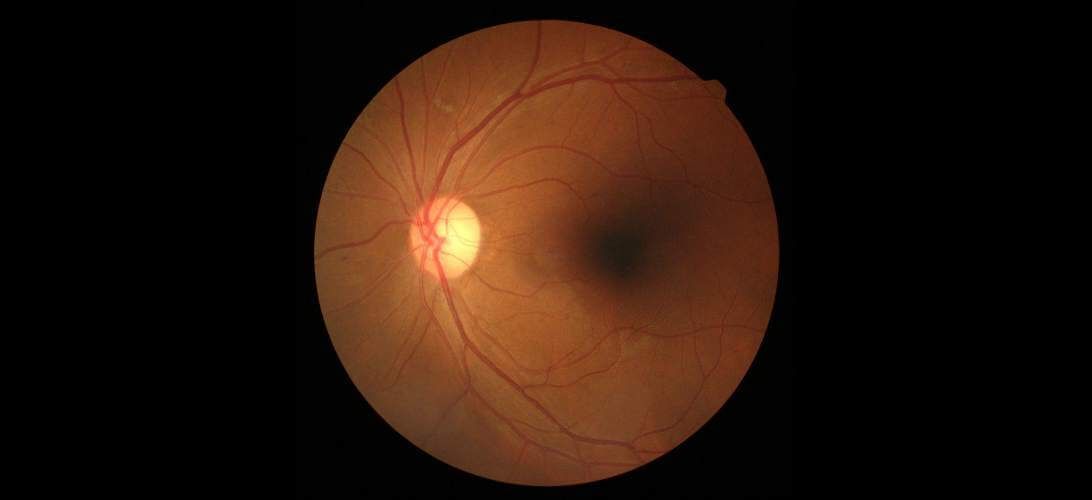Highlights
- Macular edema occurs when fluid builds up in the macula (the area behind the retina that helps you see color and fine details).
- There is no cure for macular edema, but treatment options can improve symptoms and preserve eyesight.
- Common causes of macular edema include diabetes, eye tumors, surgeries, retinal vein occlusions, and medications, among other things.
- You may be at risk of developing macular edema if you have high blood pressure, diabetes, inflammation, or abnormal blood vessels.
- You can reduce your risk of developing macular edema by maintaining a healthy blood pressure, eating nutritious foods, reducing eye strain, and staying within a healthy weight range.
Macular edema is a condition that can impact your vision. With macular edema, fluid builds up behind the eye and can make your vision blurry and weak. If left untreated, it may cause permanent damage, including vision loss.
The good news is that macular edema is usually a treatable condition. Here’s what you should know about this condition and what you can do to prevent it.
What Is Macular Edema?
Macular edema affects the retina of the eye. The retina sends electrical signals to the brain, allowing you to understand what you’re seeing. Behind the retina is the macula, which is a small, round space that contains light-detecting photoreceptor cells. The macula helps you see color and fine details.
This condition occurs when fluid builds up in the macula, leading to swelling and changes in vision. The swelling can lead to blurry or wavy eyesight, washed-out colors, or distorted objects.
Macular Edema Symptoms
In some cases, macular edema does not cause symptoms at first. However, vision changes may get worse and more noticeable over time.

Common symptoms include:
- Objects that look wavy
- Blurred vision
- Objects that look different sizes from one eye compared to the other
- Colors that look faded, washed out, or different from one eye to the other
- Trouble with reading
If you experience any of these symptoms, schedule an appointment with your ophthalmologist.
Macular Edema Causes
Many conditions can contribute to macular edema. This condition occurs when blood vessels in the eye leak into the macula. This fluid leakage can build up and cause swelling, which leads to changes in vision.
Common causes of macular edema include:
- Diabetes. High blood sugar can damage blood vessels, including those behind the eyes. These blood vessels can rupture and leak into the macula.
- Eye tumors. Benign and malignant tumors can invade the eye area and lead to blood vessel leakage.
- Age-related macular degeneration. Abnormal blood vessels can leak fluid and lead to swelling.
- Uveitis. This inflammatory condition can cause swelling in any part of the eye, including the macula.
- Retinal vein occlusion. Vein blockage can prevent blood vessels from draining properly, which can cause leakage and swelling.
- Eye surgeries. Some eye surgeries, such as those for cataracts, may cause patients to develop macular edema.
- Eye injuries. If you sustain any type of trauma to the eye, you might develop macular edema.
- Medications. Some medications may cause macular edema as a side effect, such as medications that treat glaucoma.
Diabetes is the most common cause of macular edema. If you have diabetes, it’s important to receive an eye exam every year to preserve your vision.
Macular Edema Risk Factors
Macular edema is not a disease itself, but it can occur due to other diseases. You may be at risk of macular edema due to one or more of the following factors:
- Diabetes
- Blood vessel disease
- Age (the older you are, the more at risk you become for experiencing macular edema)
- High blood pressure
- Inflammation
- Abnormal blood vessels
- Retinitis pigmentosa
- Certain genetic diseases
Your ophthalmologist can help you assess your risk factors and determine your likelihood of developing macular edema.
You may be able to make lifestyle changes or take medications to help you lower your risk profile. For example, your doctor may prescribe high blood pressure medication if diet and exercise aren’t enough, which may help reduce your risk of macular edema.
Macular Edema Diagnosis

Your eye doctor can check for macular edema during routine exams or if you experience symptoms of macular edema. Similar to a regular eye exam, your doctor will dilate your eyes and examine the retina.
If your doctor suspects you might have macular edema, they may perform additional tests to confirm it. These tests may include:
- Optical coherence tomography (OCT). This machine scans your retina to create a detailed image. This allows your doctor to look for signs of swelling and leakage.
- Fluorescein angiography. Your eye doctor may inject a yellow dye into a vein in your arm, which travels to your eye. Your doctor will then take photographs of your eye as this fluid travels through your eye’s blood vessels. The dye allows your doctor to more easily spot leakage.
- Amsler grid. The retina plays a role in your central vision, and the Amsler grid will help to assess whether you’ve lost any central vision. As you look at the grid, your doctor will want to know if any part appears wavy, dark, or distorted.
Your doctor may do one or more of the above tests to diagnose macular edema. The results are quick, allowing you to start treatment as soon as possible if needed.
Macular Edema Complications

Macular edema may start as blurry or wavy vision, but this condition gets progressively worse. If left undiagnosed or untreated, it can lead to irreversible vision loss.
Specifically, macular edema can cause:
- Permanently blurred vision
- Permanent blindness
- Irreversible changes to your peripheral vision
Your eye doctor will assess how far along this condition is and determine the necessary treatment.
Macular Edema Treatment
There is no cure for macular edema. But with the right treatment, you can reduce the impact of macular edema and prevent vision loss.
The treatment your eye doctor chooses depends on the type of macular edema you have. Treatments may include:
- Eye drops. Steroid or nonsteroidal anti-inflammatory (NSAID) eye drops may help to treat macular edema.
- Injections. Anti-VEGF injections are injected near the eye and can slow down the effects of macular edema. These may be used in conjunction with steroids to reduce inflammation.
- Laser treatment. Certain types of lasers can seal off leaking blood vessels. This is a common option for macular edema caused by diabetes or vessel blockages.
- Surgery. Eye surgery (called vitrectomy) may help reduce macular edema when other treatments are ineffective. Vitrectomy involves surgically removing the vitreous gel from the eye and peeling scar tissue from the macula.
Treatment, along with routine checkups, can help reduce the impact of macular edema and prevent the condition from becoming worse.
Macular Edema Prevention

While you may be unable to completely prevent macular edema, there are some things you can do to reduce your chances of developing symptoms. These include but are not limited to:
- Maintaining healthy blood pressure. Lowering your high blood pressure will help reduce swelling and improve blood flow.
- Improving heart health. Engage in moderate exercise, avoid smoking and alcohol, and manage your stress levels.
- Eating a healthy diet. Consuming more nutritious foods and eating less fatty and salty foods can contribute to healthy blood pressure.
- Maintaining a healthy weight. Exercising and eating a healthy diet can help you maintain a healthy weight, which can also help maintain blood pressure and heart health.
- Reducing eye strain. Wear glasses if you need them, use a magnifying glass, avoid prolonged exposure to bright screens, and use adequate lighting when reading or performing tasks.
Even with a balanced diet and healthy lifestyle, you may develop macular edema. Talk to your doctor about other ways to lower your risks.
Get the Lowest Price for Macular Edema Medications
If you’ve been diagnosed with macular edema and need the best price on your prescription medications, BidRX can help. We ensure you get the best price on medications. Simply list your prescription and let pharmacies compete for your business. You can choose the offer that suits your needs and have your medications delivered to your door.
Find your macular edema medicines on our medication page to get started.
This information is intended for general informational purposes only. It is not a substitute for professional medical advice, diagnosis, or treatment. Always seek the advice of your physician or other qualified health provider with any questions you may have regarding a medical condition or medication.
